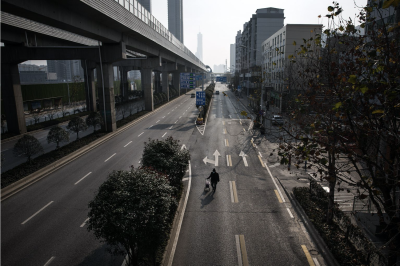Covid Lockdowns “Harmed Hundreds of Millions of People for Years to Come” – Major Study

All Global Research articles can be read in 51 languages by activating the Translate Website button below the author’s name.
To receive Global Research’s Daily Newsletter (selected articles), click here.
Click the share button above to email/forward this article to your friends and colleagues. Follow us on Instagram and Twitter and subscribe to our Telegram Channel. Feel free to repost and share widely Global Research articles.
***
The collateral damage of the pandemic response was “substantial, wide-ranging and will leave behind a legacy of harm for hundreds of millions of people”, a major new study has found.
Reviewing and synthesising 600 publications focused on the impact of the pandemic response, Dr. Kevin Bardosh of the Universities of Washington and Edinburgh concluded that these wide and deep societal harms “should challenge the dominant mental model of the pandemic response”.
The abstract provides a succinct summary of the study, which is currently in pre-print:
Early in the Covid pandemic concerns were raised that lockdown and other non-pharmaceutical interventions would cause significant multidimensional harm to society. This paper comprehensively evaluates the global state of knowledge on these adverse social impacts, with an emphasis on their type and magnitude during 2020 and 2021. A harm framework was developed spanning 10 categories: health, economy, income, food security, education, lifestyle, intimate relationships, community, environment and governance. The analysis synthesises 600 publications with a focus on meta-analyses, systematic reviews, global reports and multi-country studies. This cumulative academic research shows that the collateral damage of the pandemic response was substantial, wide-ranging and will leave behind a legacy of harm for hundreds of millions of people in the years ahead.
Many original predictions are broadly supported by the research data including: a rise in non-Covid excess mortality, mental health deterioration, child abuse and domestic violence, widening global inequality, food insecurity, lost educational opportunities, unhealthy lifestyle behaviours, social polarisation, soaring debt, democratic backsliding and declining human rights. Young people, individuals and countries with lower socioeconomic status, women and those with pre-existing vulnerabilities were hit hardest.
Societal harms should challenge the dominant mental model of the pandemic response: it is likely that many Covid policies caused more harm than benefit, although further research is needed to address knowledge gaps and explore policy trade-offs, especially at a country-level. Planning and response for future global health emergencies must integrate a wider range of expertise to account for and mitigate societal harms associated with government intervention.
The project was supported by Collateral Global, a U.K. registered Charity co-founded by Jay Bhattacharya, Martin Kulldorff and Sunetra Gupta of the Great Barrington Declaration with Carl Heneghan of the Oxford Centre for Evidence-Based Medicine, “dedicated to researching, understanding and communicating the effectiveness and collateral impacts of the mandatory NPIs taken by governments worldwide in response to the Covid pandemic”.

